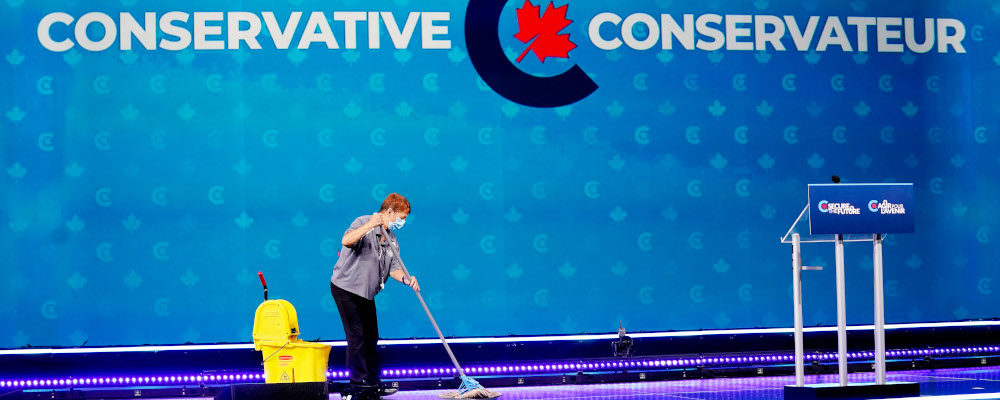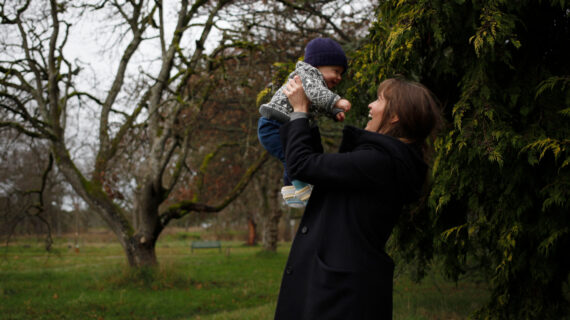What is the right path for the future of Canadian conservatism?
With a Conservative Party leadership race now unofficially underway, we’re bound to hear various answers to this question in the coming weeks and months.
As I wrote in the immediate aftermath of Erin O’Toole’s sacking as Conservative leader, such a fundamental question seemed less salient in the party’s two post-2015 leadership campaigns. There was a sense in those previous races that the Conservative Party’s basic policies and priorities remained, by and large, correct and the real issue for party members was to select a leader based on a combination of aesthetics and communications. The Conservatives required cosmetic change rather than ideational renewal.
It’s not that there weren’t different perspectives represented in these campaigns including Red Tories, libertarians, populists, and social conservatives. The 2017 leadership race, in particular, involved candidates that reflected the full breadth of conservative ideas and values.
But the overwhelming assumption was that the best path was to essentially double down on what had worked from 2006 to 2015 in terms of messaging, policies, and priorities. The line connecting Andrew Scheer’s “full-spectrum” conservatism in the 2017 leadership campaign and O’Toole’s “true blue” conservatism in 2020 was in hindsight rather straightforward.
This time around one gets the sense that there will be more room for a bigger shake-up. Not only has the party lost consecutive elections, but the broader cultural, economic, and political context has significantly changed from the final days of the last Conservative government.
The ongoing COVID-19 pandemic is the most immediate and obvious example. But there are various others including the pre-pandemic collapse of Canada’s balanced budget consensus, growing concerns about our long-term living standards, the pervasive rise of identity politics, and renewed questions about national unity and Canada’s place in the world.
This complex mix of issues is occurring against a backdrop of growing populist energy on the Canadian Right and the increasing importance of social media in a moment when Conservatives are less trusting of traditional media sources. The eventual winner of the impending leadership race will need to navigate these various issues and challenges.
The key point here is that the internal leadership process ought to be more introspective and substantive than the previous campaigns. There’s a strong likelihood that a message of simple continuity will be perceived by party members and the broader Canadian public as incommensurate with the country’s challenges and Conservatives’ own woes. It isn’t enough to merely cycle through its fifth leader in nine years. The Conservative Party needs to commit itself to a spirit of renewal and reform.
As a non-partisan media organization, we’ll leave it to active partisans to debate how best to bring expression to such a renewed sense of confidence and optimism within the party. But it does prompt a bigger question that I raised in response to last year’s federal budget: why are progressives winning the battle of ideas?
This isn’t a partisan question. It’s about the broader intellectual framework that’s presently shaping Canadian policy and politics. If in the two or three decades following the end of the Cold War, conservative ideas were in the ascendancy, as evidenced, for instance, by the rightward shift of the Liberal Party during this period, what’s changed?
There’s an obvious risk that any answer to such a question is too deterministic. There are many factors at play including the interplay between the country’s evolving economic, demographic, and cultural conditions. It’s striking though, as economist Chris Ragan has observed, that we’ve gone from every major political party supportive of balanced budgets as recently as ten years ago to today’s new multi-partisan consensus in favour of larger and longer deficits. Something obviously changed.
Journalist Andrew Coyne attributes it to a “victim-of-its-own-success” scenario whereby these ideational victories in the Reagan era caused conservatism’s intellectual muscles to atrophy. There’s also the declining salience of issues concerning deficits and debt which had been a policy advantage for conservatives. New and emerging issues such as income inequality, climate change, and race, identity, and gender are a less natural fit.
One aspect of this question though that has bedeviled me is the lack of intellectual cross-pollination between elected Conservatives and the broader ecosystem of conservative academics, intellectuals, and think-tank scholars. That ecosystem is no doubt smaller than its left-wing equivalent due in large part to progressive dominance of universities, but it still comprises smart people and well-funded organizations and produces a lot of policy papers, op-eds, and other forms of analysis that in theory should be a key source of intellectual sustenance for Conservative parties across the country. That it hasn’t proven to be in recent years raises interesting questions about the impediments blocking the translation of these ideas into a practical political agenda.
There are various factors that may explain the sources of the problem. Maybe our top-down politics and strict caucus discipline discourage the type of policy entrepreneurship that would have individual parliamentarians working with think tanks to cultivate and bring expression to new and interesting ideas. Perhaps the country’s low party financing limits have caused the Conservative Party to focus more on galvanizing its core voters with party orthodoxy than developing an inventory of new and possibly heterodox ideas. A series of minority parliaments has probably led to a greater emphasis on fundraising and party operations than ideation and policy development. And the rise of social media has created perverse incentives for politicians to prioritize soundbites over sound policy.
But we shouldn’t solely blame politicians. Those of us who work in the world of conservative ideas and public policy also need to consider our own shortcomings, including our collective responsibility for these broader intellectual and political trends. We should ask ourselves tough questions about the work that we do, how we do it, and why we aren’t having more influence over the policy debate.
Are we focused on the right issues? Are we missing out on key policy areas? Are we producing practical and concrete policy recommendations? Are we effectively communicating our ideas and policy thinking to the public and politicians?
Introspection and renewal, in other words, shouldn’t be limited to partisans. There’s an onus on the country’s conservative intellectual and policy class to similarly think about how to bring greater political expression to our ideas and values.
It seems to me that progressive intellectuals have done a more effective job at establishing greater proximity to the policy process and producing more practical and relevant advice. Some of this, as mentioned, may merely reflect the current mix of dominant policy issues, but one gets the sense that it’s more than that. A combination of progressive ideas and politics have slowly yet surely brought the centre of Canadian politics to them.
In response to these leftward developments, there can be a tendency on the part of conservative writers and scholars to summarily reject progressive policies but not communicate a comprehensive and practical alternative. This approach is an intellectual and political loser that invariably contributes to a vicious cycle of embattlement and marginalization. As one of The Hub’s contributors recently observed, it’s not enough for Conservatives (or conservatives) to articulate what they’re against; they also need to define what they’re for.
The upshot is that this disjunctive political moment should be more than another round of swapping party leaders as an end in itself. It should be a call to the broader world of Canadian conservatism to ask itself about the right path for the future of its intellectual and political movement. That’s the first step to renew its sense of energy and purpose and ultimately challenge the progressive ascendancy in our politics.




